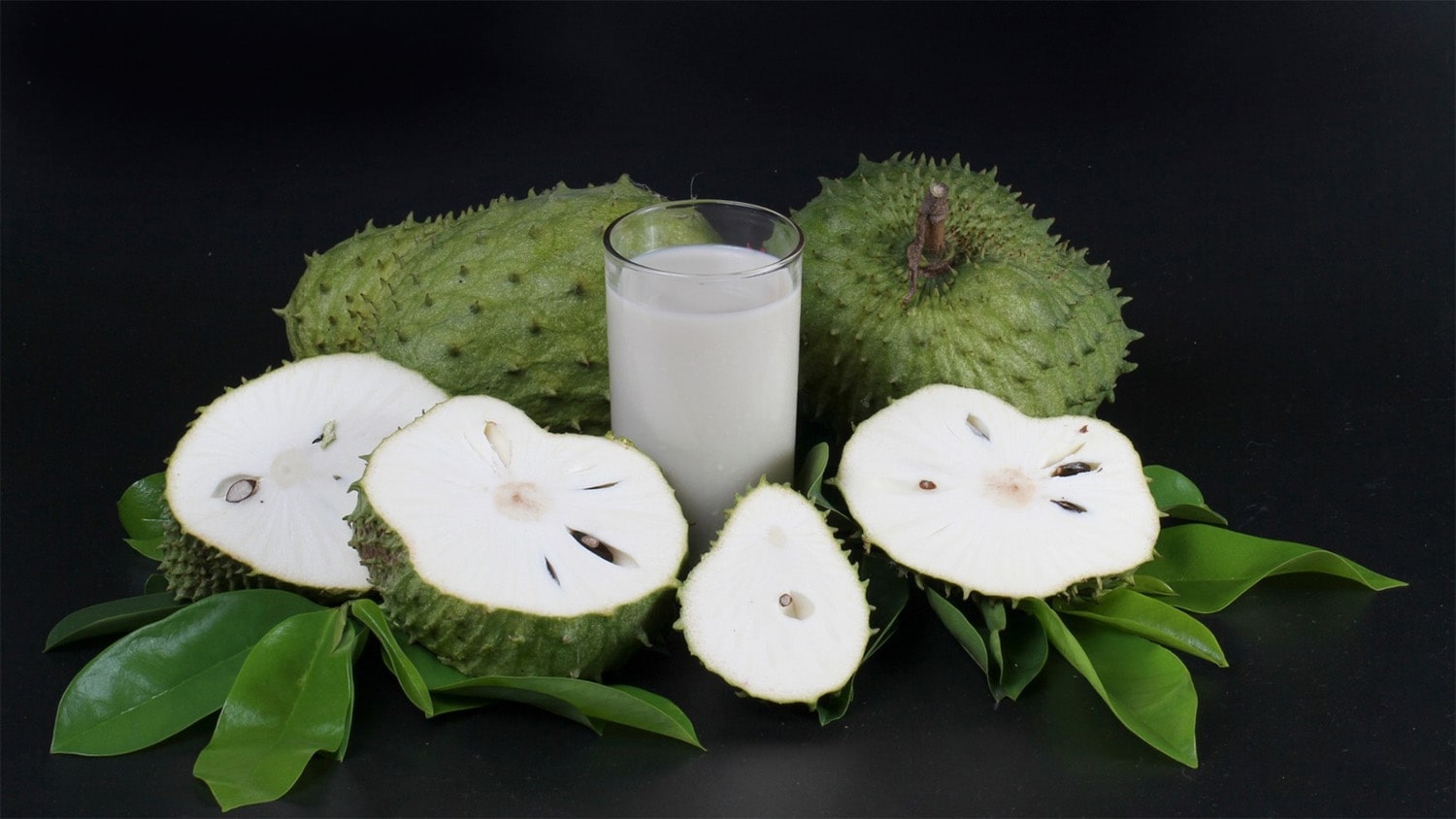
25 interesting facts about soursop
- 👁️ 272
Soursop, known scientifically as Annona muricata, is a fruit that has piqued the interest of many around the world for its distinctive taste, potential health benefits, and its use in traditional medicine. Often found in tropical regions of the Americas and parts of Africa, this green, spiky fruit has a creamy texture and a flavor that combines notes of strawberry, pineapple, and citrus. Beyond its culinary uses, soursop has been researched for its various bioactive compounds, which have shown promise in a range of medicinal applications. Let’s explore some fascinating and informative facts about soursop, from its nutritional profile to its role in folklore.
- Soursop belongs to the Annonaceae family, which includes over 130 genera and about 2300 species.
- The fruit can grow quite large, weighing up to 5 kilograms (11 pounds) and reaching lengths of up to 30 centimeters (12 inches).
- Soursop is rich in vitamins C and B, as well as antioxidants that are thought to contribute to its health benefits.
- It is also a good source of dietary fiber, which can aid in digestion and improve gut health.
- The leaves of the soursop tree are used in traditional medicine to treat a variety of ailments, including stomach complaints, fever, and parasitic infections.
- Some studies have suggested that compounds found in soursop, particularly acetogenins, may have anti-cancer properties, although more research is needed to fully understand their effects.
- Soursop is commonly consumed fresh but can also be used in beverages, desserts, and ice creams.
- In many cultures, soursop is believed to have sedative properties and is used to promote relaxation and sleep.
- The fruit’s seeds are toxic if ingested, as they contain annonacin, a neurotoxin.
- Soursop has a high moisture content, making it a refreshing snack in hot climates.
- The tree flowers produce a fragrant smell and bloom year-round in tropical climates.
- Soursop is also known by other names, including graviola, guanabana, and Brazilian paw paw.
- The skin of the soursop fruit is inedible and covered in soft, curved spines.
- In some regions, soursop leaves are brewed into a tea believed to have medicinal properties.
- The fruit’s pulp is used topically in some cultures to treat wounds and skin conditions.
- Soursop has been featured in folklore and traditional stories in various cultures, often attributed with magical or healing properties.
- Despite its potential health benefits, there is no conclusive scientific evidence that soursop can cure or prevent cancer.
- Soursop juice is a popular beverage in many tropical countries, often mixed with milk or sugar to enhance its flavor.
- The fruit is pollinated by insects, with beetles being the primary pollinators.
- Soursop trees are relatively fast-growing and can begin to bear fruit in as little as three to five years after planting.
- The optimal temperature for growing soursop is between 25 and 28 degrees Celsius (77 and 82 degrees Fahrenheit).
- Overconsumption of soursop can lead to neurotoxic effects due to the presence of annonacin.
- In traditional medicine, soursop leaves are used as a remedy for insomnia and anxiety.
- The fruit’s unique flavor has made it a favorite ingredient in exotic fruit salads and smoothies.
- Soursop is considered both a fruit and a herb due to its culinary and medicinal applications.
Soursop is a remarkable fruit that offers a wealth of nutritional benefits and potential medicinal properties. Its unique flavor makes it a favorite in tropical cuisines, while the leaves and other parts of the plant are used in traditional remedies for a variety of health conditions. Although more research is needed to fully understand the extent of soursop’s health benefits, it continues to be a subject of interest for both the scientific community and those looking to natural remedies for wellness. With its combination of taste, nutrition, and potential health benefits, soursop is a valuable addition to the diversity of tropical fruits available worldwide.
Soursop, known scientifically as Annona muricata, is a fruit that has piqued the interest of many around the world for its distinctive taste, potential health benefits, and its use in traditional medicine. Often found in tropical regions of the Americas and parts of Africa, this green, spiky fruit has a…